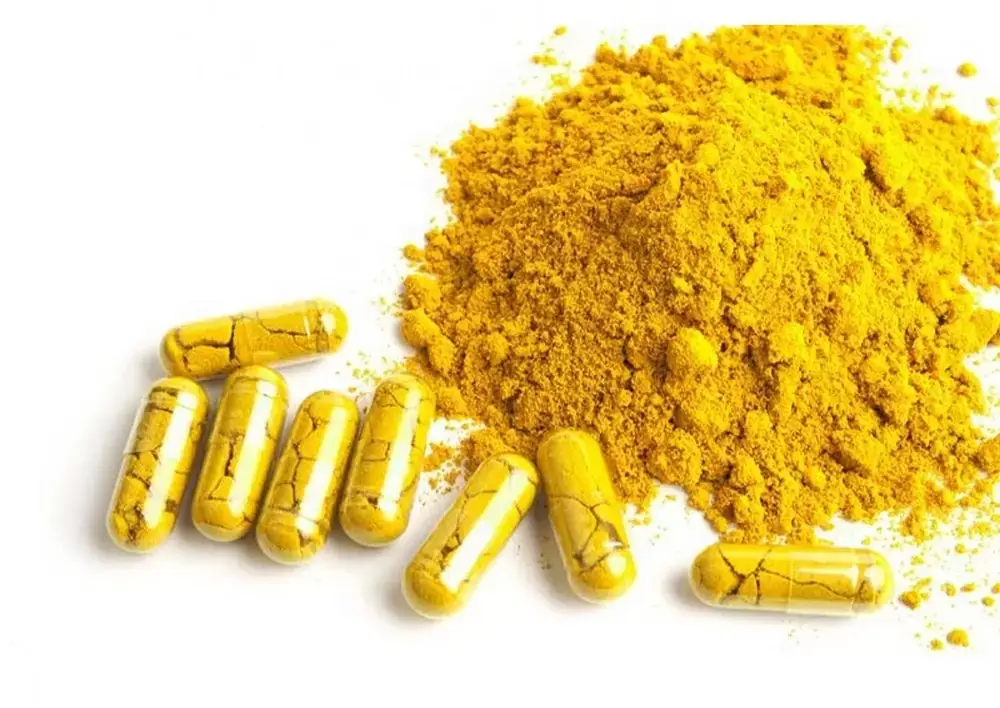How Berberine Hydrochloride Powder Supports Blood Sugar Regulation?
Berberine Hydrochloride powder has emerged as a powerful natural supplement for supporting blood sugar regulation, offering a promising alternative for individuals struggling with metabolic disorders, particularly type 2 diabetes. This yellow alkaloid, derived from various plants including the Berberis species, has been used in traditional medicine for centuries and is now gaining recognition in modern healthcare for its remarkable effects on glucose metabolism. As a 97% pure powder, Berberine HCl offers a concentrated form of this bioactive compound, making it an efficient and versatile option for those seeking to manage their blood sugar levels naturally. Its ability to influence multiple pathways involved in glucose homeostasis has positioned Berberine Hydrochloride powder as a valuable tool in the fight against diabetes and metabolic syndrome, offering hope to millions worldwide seeking effective, natural solutions for blood sugar control.

The Mechanism of Action: Activating AMPK to Improve Insulin Sensitivity and Glucose Metabolism
AMPK Activation: The Key to Berberine's Effectiveness
Berberine Hydrochloride powder exerts its blood sugar-regulating effects primarily through the activation of AMP-activated protein kinase (AMPK), often referred to as the "metabolic master switch." This enzyme plays a crucial role in cellular energy homeostasis and is a key regulator of glucose and lipid metabolism. When activated by Berberine HCl, AMPK stimulates glucose uptake in cells, particularly in muscle and liver tissues, independent of insulin. This mechanism is particularly beneficial for individuals with insulin resistance, as it provides an alternative pathway for glucose to enter cells, effectively lowering blood sugar levels. The potent AMPK-activating properties of Berberine Hydrochloride powder make it a valuable supplement for those seeking to improve their metabolic health naturally.
Enhancing Insulin Sensitivity and Glucose Uptake
Beyond AMPK activation, Berberine Hydrochloride powder significantly enhances insulin sensitivity throughout the body. This improvement in insulin sensitivity means that cells become more responsive to insulin's signals, allowing for more efficient glucose uptake and utilization. Berberine HCl achieves this by increasing the expression of insulin receptors on cell surfaces and by enhancing the activity of intracellular insulin signaling pathways. As a result, the same amount of insulin can produce a more substantial glucose-lowering effect, which is particularly beneficial for individuals with type 2 diabetes or prediabetes. The enhanced insulin sensitivity promoted by Berberine Hydrochloride powder not only helps in lowering blood sugar levels but also reduces the strain on the pancreas to produce excessive amounts of insulin, potentially slowing the progression of diabetes.
Modulating Glucose Metabolism in the Liver
The liver plays a central role in glucose metabolism, and Berberine Hydrochloride powder exerts significant effects on hepatic glucose handling. By inhibiting gluconeogenesis (the production of new glucose in the liver) and glycogenolysis (the breakdown of stored glycogen into glucose), Berberine HCl helps reduce the amount of glucose released into the bloodstream by the liver. This action is particularly important in managing fasting blood glucose levels, as excessive hepatic glucose production is a major contributor to elevated blood sugar in individuals with diabetes. Additionally, Berberine Hydrochloride powder enhances glycolysis, the process by which glucose is broken down for energy, further contributing to its blood sugar-lowering effects. These multifaceted actions on liver metabolism make Berberine HCl an effective supplement for comprehensive blood sugar management.
Examining the Clinical Evidence: Berberine's Efficacy Compared to Conventional Diabetes Medications
Comparative Studies: Berberine vs. Metformin
Numerous clinical trials have compared the efficacy of Berberine Hydrochloride powder to metformin, one of the most widely prescribed medications for type 2 diabetes. These studies have consistently shown that Berberine HCl is as effective as metformin in reducing blood glucose levels, with some research suggesting it may even be superior in certain aspects. For instance, a landmark study published in the journal "Metabolism" found that patients taking 500 mg of Berberine HCl three times daily experienced reductions in fasting blood glucose, postprandial glucose, and HbA1c levels comparable to those taking metformin at the same dosage. Importantly, Berberine Hydrochloride powder demonstrated additional benefits in lipid metabolism, showing more significant reductions in total cholesterol and triglyceride levels compared to metformin. These findings highlight the potential of Berberine HCl as a natural alternative or complementary treatment to conventional diabetes medications.
Safety Profile and Side Effects
One of the most compelling aspects of Berberine Hydrochloride powder in blood sugar management is its favorable safety profile compared to many conventional diabetes medications. Clinical studies have shown that Berberine HCl is generally well-tolerated, with mild gastrointestinal discomfort being the most commonly reported side effect. Unlike some diabetes medications that can cause weight gain or increase the risk of hypoglycemia, Berberine Hydrochloride powder has been associated with modest weight loss and a low risk of hypoglycemic events. This safety profile makes Berberine HCl an attractive option for individuals who are sensitive to the side effects of traditional diabetes medications or those looking for a natural approach to blood sugar management. However, as with any supplement, it's crucial for individuals to consult with healthcare providers before incorporating Berberine Hydrochloride powder into their regimen, especially if they are taking other medications.
Long-term Benefits and Metabolic Improvements
The long-term benefits of using Berberine Hydrochloride powder for blood sugar regulation extend beyond glycemic control. Studies examining the prolonged use of Berberine HCl have reported sustained improvements in various markers of metabolic health. In addition to maintaining lower blood glucose levels, long-term users of Berberine Hydrochloride powder often experience improvements in lipid profiles, including reductions in LDL cholesterol and triglycerides, and increases in HDL cholesterol. Furthermore, some research suggests that Berberine HCl may have protective effects on pancreatic beta cells, potentially slowing the progression of diabetes over time. These comprehensive metabolic benefits underscore the value of Berberine Hydrochloride powder as a holistic approach to managing not just blood sugar, but overall metabolic health. The multifaceted action of Berberine HCl on various aspects of metabolism positions it as a promising natural intervention for the long-term management of diabetes and metabolic syndrome.
A Guide to Using Berberine HCl Powder for Natural Blood Sugar Management and Metabolic Health
Optimal Dosage and Administration
Determining the optimal dosage of Berberine Hydrochloride powder for blood sugar management is crucial for maximizing its benefits while minimizing potential side effects. Most clinical studies have utilized doses ranging from 900 to 1500 mg per day, typically divided into two or three doses taken with meals. For example, a common regimen might involve taking 500 mg of Berberine HCl powder three times daily. However, it's important to note that individual responses can vary, and some people may achieve desired results with lower doses. When starting Berberine Hydrochloride powder supplementation, it's often recommended to begin with a lower dose and gradually increase it to assess tolerance and effectiveness. The powder form of Berberine HCl offers flexibility in dosing, allowing for easy adjustments based on individual needs and responses. As with any supplement regimen, it's crucial to consult with a healthcare provider before starting, especially for individuals with existing health conditions or those taking medications.
Synergistic Combinations for Enhanced Efficacy
While Berberine Hydrochloride powder is effective on its own, combining it with other natural compounds can potentially enhance its blood sugar-regulating properties. One popular combination is Berberine HCl with alpha-lipoic acid, as both compounds have complementary effects on glucose metabolism and insulin sensitivity. Another synergistic pairing is Berberine Hydrochloride powder with chromium, which has been shown to improve insulin function and glucose tolerance. Some formulations also include cinnamon extract, known for its positive effects on blood sugar control. These combinations can offer a more comprehensive approach to metabolic health, addressing multiple aspects of glucose regulation and insulin function. When considering synergistic combinations with Berberine HCl powder, it's important to choose high-quality, standardized supplements and to consult with a healthcare professional to ensure safety and appropriateness for individual health needs.
Lifestyle Integration for Optimal Results
To maximize the blood sugar-regulating benefits of Berberine Hydrochloride powder, it's essential to integrate its use with a healthy lifestyle. This includes maintaining a balanced diet rich in fiber, lean proteins, and healthy fats, while limiting refined carbohydrates and sugars. Regular physical activity is also crucial, as exercise enhances insulin sensitivity and complements the metabolic effects of Berberine HCl. Stress management techniques, such as meditation or yoga, can further support metabolic health by reducing stress hormones that can interfere with glucose regulation. Additionally, ensuring adequate sleep is important, as poor sleep quality can negatively impact blood sugar control. By combining Berberine Hydrochloride powder supplementation with these lifestyle factors, individuals can create a comprehensive approach to blood sugar management and overall metabolic health. This holistic strategy not only enhances the effectiveness of Berberine HCl but also promotes long-term health and well-being.
Conclusion
Berberine Hydrochloride powder has emerged as a potent natural supplement for blood sugar regulation, offering a promising alternative or complement to conventional diabetes medications. Its ability to activate AMPK, enhance insulin sensitivity, and modulate glucose metabolism positions it as a valuable tool in managing type 2 diabetes and metabolic syndrome. With a favorable safety profile and additional benefits for lipid metabolism and overall metabolic health, Berberine HCl presents an attractive option for those seeking natural approaches to blood sugar control. As research continues to unveil its mechanisms and benefits, Berberine Hydrochloride powder stands out as a key player in the fight against diabetes and metabolic disorders.
At Avans NutriHealth Co., Ltd., we are committed to providing high-quality Berberine Hydrochloride powder to support your health and wellness goals. As a leading manufacturer and supplier of plant extracts and nutritional supplements in China, we offer 97% pure Berberine HCl powder, backed by rigorous quality control and international certifications. Our product is ideal for incorporation into health care products and medicinal applications. For more information or to discuss how our Berberine Hydrochloride powder can meet your needs, please contact us at Lillian@avansnutri.com. Let us help you harness the power of nature for better health.
FAQ
Q: How does Berberine Hydrochloride powder lower blood sugar?
A: Berberine HCl activates AMPK, enhances insulin sensitivity, and modulates glucose metabolism in the liver, effectively lowering blood sugar levels.
Q: Is Berberine Hydrochloride powder as effective as diabetes medications?
A: Clinical studies have shown Berberine HCl to be comparable to metformin in reducing blood glucose levels, with additional benefits for lipid metabolism.
Q: What is the recommended dosage of Berberine Hydrochloride powder?
A: Typical dosages range from 900 to 1500 mg per day, divided into 2-3 doses, but it's best to consult a healthcare provider for personalized advice.
Q: Are there any side effects of taking Berberine Hydrochloride powder?
A: Berberine HCl is generally well-tolerated, with mild gastrointestinal discomfort being the most common side effect.
Q: Can Berberine Hydrochloride powder be combined with other supplements?
A: Yes, Berberine HCl can be combined with supplements like alpha-lipoic acid or chromium for enhanced efficacy, but consult a healthcare professional first.
References
1. Zhang, Y., et al. (2008). Treatment of Type 2 Diabetes and Dyslipidemia with the Natural Plant Alkaloid Berberine. Journal of Clinical Endocrinology & Metabolism, 93(7), 2559-2565.
2. Yin, J., et al. (2008). Efficacy of Berberine in Patients with Type 2 Diabetes Mellitus. Metabolism, 57(5), 712-717.
3. Lan, J., et al. (2015). Meta-analysis of the effect and safety of berberine in the treatment of type 2 diabetes mellitus, hyperlipemia and hypertension. Journal of Ethnopharmacology, 161, 69-81.
4. Xu, X., et al. (2014). Berberine: A Potential Therapeutic Agent for Metabolic Syndrome. Current Pharmaceutical Design, 20(7), 1011-1031.
5. Pang, B., et al. (2015). Application of Berberine on Treating Type 2 Diabetes Mellitus. International Journal of Endocrinology, 2015, 905749.
6. Pérez-Rubio, K.G., et al. (2013). The Use of Berberine for the Prevention of Type 2 Diabetes Mellitus. Expert Opinion on Investigational Drugs, 22(12), 1609-1614.



